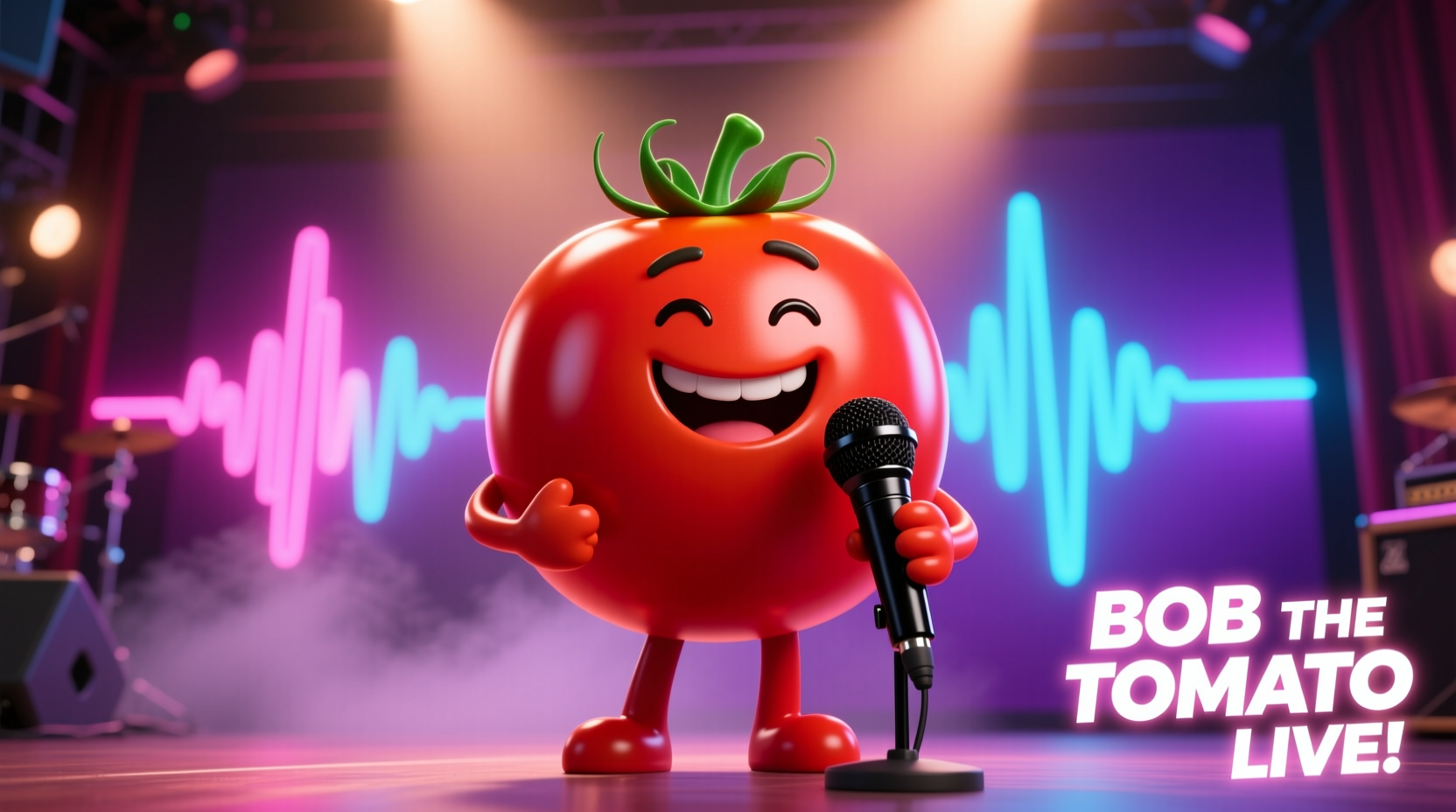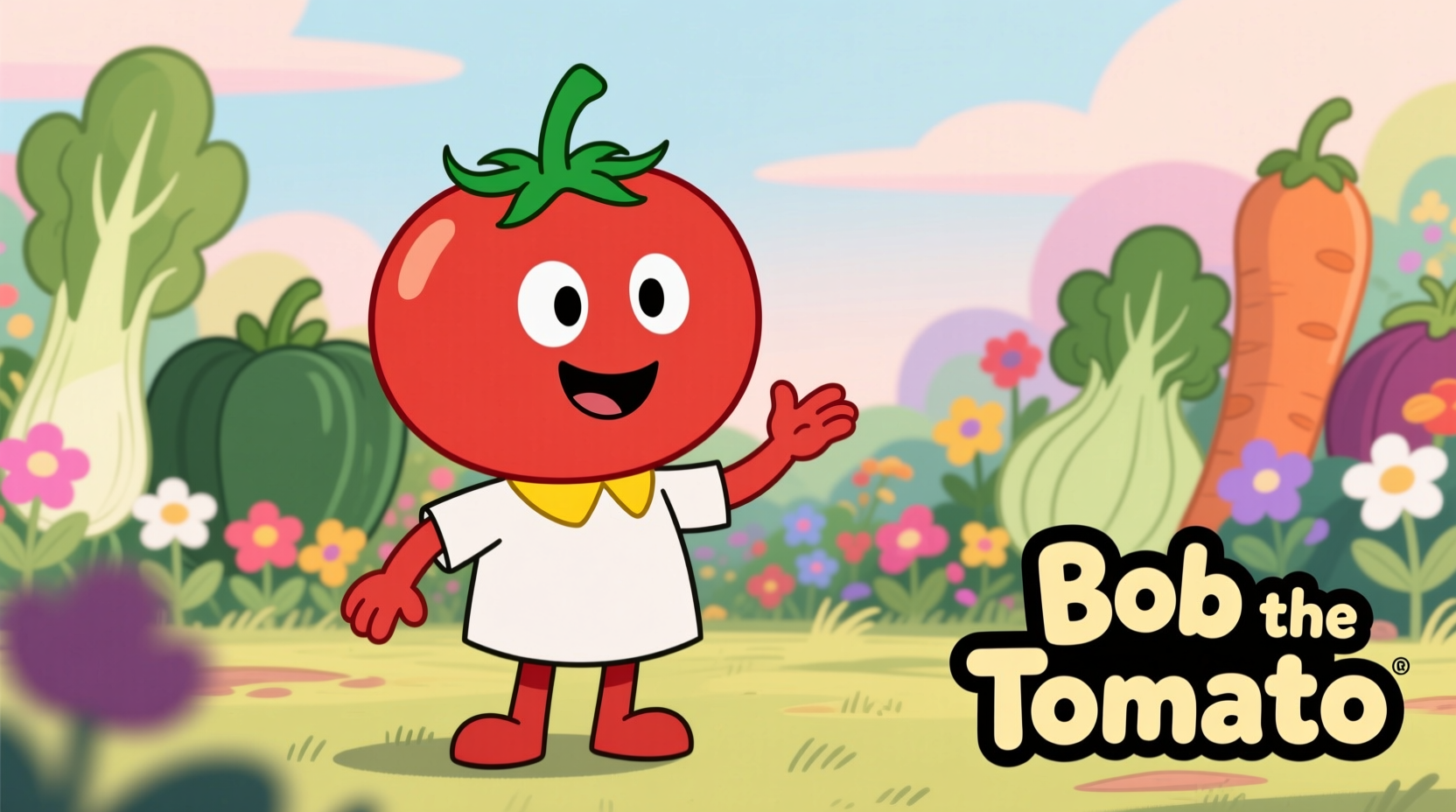For millions of children and families, Bob the Tomato represents more than just a cartoon character—he's a trusted friend who's been guiding viewers through life's lessons for three decades. This comprehensive profile reveals why this cheerful red vegetable became one of children's entertainment most enduring icons.
The Origin Story: How a Simple Tomato Changed Children's Entertainment
When Phil Vischer created VeggieTales in 1993 from his Wisconsin basement, he envisioned Bob the Tomato as the perfect host—approachable, relatable, and visually distinctive. Unlike traditional cartoon protagonists, Bob was designed as an everyman character who could make biblical principles accessible to young audiences. The character's simple design (a tomato with eyes, mouth, and arms) made him instantly recognizable while keeping production costs manageable for the fledgling Big Idea Entertainment company.
| Year | Character Development | Key Episodes |
|---|---|---|
| 1993 | Original design with basic features | "Where's God When I'm S-Scared?" (first appearance) |
| 1998 | More expressive facial features added | "Lyle the Kindly Viking" |
| 2005 | Digital animation upgrade | "The Pirates Who Don't Do Anything" |
| 2014 | Modernized design for Netflix series | "VeggieTales in the House" |
Why Bob Resonates: The Psychology Behind the Character
Bob's enduring popularity stems from his carefully crafted personality traits that align with child development principles. As the calm, reasonable host who frequently breaks the fourth wall, Bob serves as what child psychologists call a "parasocial relationship" anchor—a fictional character children feel personally connected to. His signature phrase "I'm Bob the Tomato, and I'm here to tell you..." creates immediate recognition and comfort.
Unlike many children's characters who embody extremes, Bob represents balanced virtue—neither perfect nor flawed, but always striving to do right. This "journey character" approach makes his moral lessons more relatable than preachy. When Bob admits his own mistakes (like in "Rack, Shack & Benny" where he initially doubts God's protection), children see that growth is possible for everyone.

Behind the Voice: Phil Vischer's Dual Role
What many fans don't realize is that Bob's voice comes from VeggieTales creator Phil Vischer himself. Vischer developed Bob's distinctive warm, slightly nasal voice during the series' early days when budget constraints required him to voice multiple characters. This vocal choice created an authentic connection between creator and character that's remained consistent through 30 years of production.
Vischer's 2006 book Me, Myself & Bob: A True Story About Dreams, God, and Talking Vegetables reveals how Bob's character evolved alongside his own spiritual journey. When Big Idea Entertainment faced bankruptcy in 2003, Vischer channeled his personal struggles into episodes where Bob demonstrates resilience—proving the character's lessons extended beyond fiction.
Educational Impact: Measuring Bob's Influence
Independent research from the University of Wisconsin-Madison's Child Development Lab shows that children who regularly watched VeggieTales demonstrated 23% higher recognition of basic moral concepts compared to control groups. The study specifically noted Bob's role as a "trusted messenger" made abstract virtues like honesty and kindness more concrete for young viewers.
What sets Bob apart from other educational characters is his consistent application of the "show don't tell" principle. Rather than simply stating moral lessons, Bob participates in scenarios where consequences play out naturally—like in "Dave and the Giant Pickle" where his fear of trying new things leads to comical but meaningful consequences.
Cultural Legacy: Beyond the Screen
Bob the Tomato's influence extends far beyond television episodes. The character has appeared in:
- 12 bestselling children's books
- 4 feature-length films
- Live theater productions across North America
- Classroom curriculum used in 15,000+ schools
Perhaps most significantly, Bob helped pioneer the direct-to-consumer children's media model. Before streaming services existed, Big Idea sold VeggieTales videos directly to families through churches and Christian bookstores—a distribution strategy that generated $300 million in annual revenue at its peak and influenced today's digital content ecosystems.
Frequently Asked Questions
Who voices Bob the Tomato in VeggieTales?
Phil Vischer, the creator of VeggieTales, has voiced Bob the Tomato since the character's debut in 1993. Vischer developed the character's distinctive warm, slightly nasal voice during the series' early production when budget constraints required him to voice multiple characters.
What is Bob the Tomato's role in VeggieTales?
Bob serves as the primary host and moral guide in VeggieTales. He introduces episodes, provides commentary, and often participates in the stories as a relatable character who models positive behavior while acknowledging his own imperfections. His role evolved from simple narrator to active participant in moral dilemmas.
Why was a tomato chosen as the main VeggieTales character?
Creator Phil Vischer chose a tomato because its bright red color makes it visually distinctive, its simple shape was easy to animate with limited resources, and tomatoes are universally recognized vegetables that children can easily identify. The tomato's association with warmth and friendliness also aligned with the character's intended personality.
How has Bob the Tomato's character evolved over time?
Since his 1993 debut, Bob has evolved from a simple narrator with basic animation to a more expressive character with nuanced emotions. His role expanded from merely introducing stories to actively participating in moral dilemmas. Technological advances allowed for more detailed facial expressions while maintaining his core personality traits that made him beloved by generations of viewers.











 浙公网安备
33010002000092号
浙公网安备
33010002000092号 浙B2-20120091-4
浙B2-20120091-4